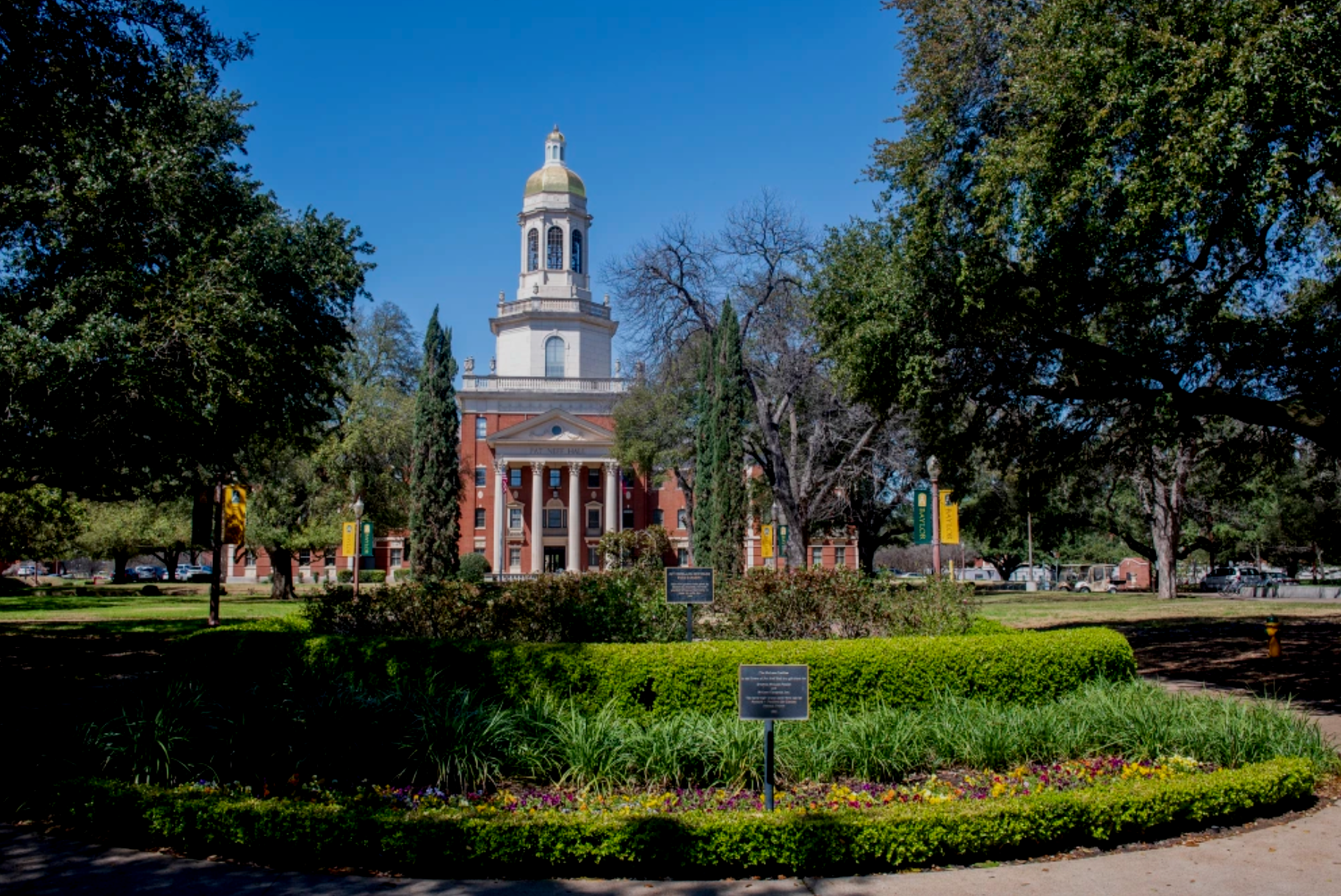Waco Tribune | Rhiannon Saegert | November 10, 2019
While the unofficial LGBTQ student group at Baylor University remains unofficial, a few things have changed.
Members of Gamma Alpha Upsilon got a chance to address the Baylor Board of Regents during the regents’ meeting last week, a first in the school’s history. The students requested a meeting with the regents in a letter sent in July. Vice President Anna Conner addressed the board, along with fellow GAY members Kyle Desrosiers and Charis Merchant. They discussed their own experiences, as well as the experiences of other LGBTQ students on campus.
“We got pretty personal with those stories, and it caused emotions to run high in the room,” Conner said.
The board took no action and the group will continue to seek a charter making it an official student organization, but Conner said the regents seemed receptive. In previous semesters, requests to speak to the regents had been turned down because of the group’s unofficial status.
“I think we really made an impact with them,” Conner said. “It was a panel, so it was just the three of us. We talked for an hour.”
Regents had discussed LGBTQ students during a retreat this summer, and Baylor President Linda Livingstone announced the university’s intentions to better support LGBTQ students in a statement in August. Livingstone also announced a discussion series focused on having civil conversations about difficult topics. The announcements came after a group of students and alumni emailed the Big 12 Conference and the NCAA in August, asking the organizations to re-examine the university’s treatment of LGBTQ students.
A more recent incident drew more criticism. A guest speaker in American sign language senior lecturer Lewis Lummer’s class, Jari Saavalainen with New Life Deaf Community Church, gave a presentation that veered off-course. When a student asked about Saavalainen’s work, he pulled up a website for a conversion therapy organization that specifically targets deaf Christians. Saavalainen continued to present in ASL for about 10 minutes.
Celia Scrivener, a nursing major from Marshall who is taking ASL as a foreign language, snapped a photo and posted about the incident on Twitter. Coincidentally, Scrivener is a GAY officer.
“My jaw dropped,” Scrivener said. “No one in the class seemed comfortable with it at all. I’m very stereotypical looking, it’s not a secret to anyone that I am gay. It kind of singled me out in front of that group of people. It was a lot of uncomfortable-looking faces, especially mine.”
She said she does not blame Baylor for the incident and has not experienced anything comparable in her time as a student there.
“If anything I think it was a lapse in judgment on the part of Dr. Lummer,” Scrivener said. “Baylor didn’t even know until the internet knew.”
Lummer apologized in an email to students the next day and explained he had not known what the guest was going to talk about ahead of time.
“I grew up going to Christian schools. … I’ve never been in a class where, all of the sudden, conversion therapy is on the board,” Scrivener said. “Especially not in an ASL class, where that doesn’t have anything to do with my understanding of a language.”
A Baylor spokesperson said the incident “does not align with the institution’s stance regarding conversion therapy.”
“Throughout the fall semester, President Linda Livingstone has had a focus on civil discourse in which we all strive to understand and be respectful of differing opinions,” according to the university’s statement. “The university does have a policy for students who believe a faculty member has treated him or her unfairly with respect to a course for which the student was registered. We encourage students in the class to exercise the appropriate procedures.”
Now, a faculty member anonymously provides GAY with a room on campus to use for meetings. One of the reasons the group continues to seek official chartered status is so it will be allowed to rent meeting spaces on campus.
“The group has worked hard to offer the kind of relationships and care they hope others will provide,” said Jon Singletary, who is dean of Baylor’s Diana R. Garland School of Social Work and describes himself as a friend and ally of the students. “This organization has worked hard to show the kind of respect for others that we hope to receive.”
Conner said the room provides an extra layer of safety that has allowed students who were uncomfortable with the group’s public meetings to join.
“It’s nice to see people who didn’t usually come,” President Elizabeth Benton said. “There’s a lot of new people here.”
The first meeting of the semester had about 40 people.
“It was a lot of people who didn’t know we existed came, a lot of people who wanted to show they supported us, and also new students as well,” Conner said. “It’s pretty well-known now.”
Conner said the most common refrain they hear from critics, “Why come to Baylor if you’re gay?” is one they are all tired of.
“There’s people who were forced to come here. There’s people who are legacies. There’s people who didn’t know about their identity until they came here,” Conner said. “Then, there’s people who say ‘This is the best school and they gave me the most money. It’s the highest ranking, and I’m not going to sacrifice my academic future because they say I shouldn’t exist.’ ”













